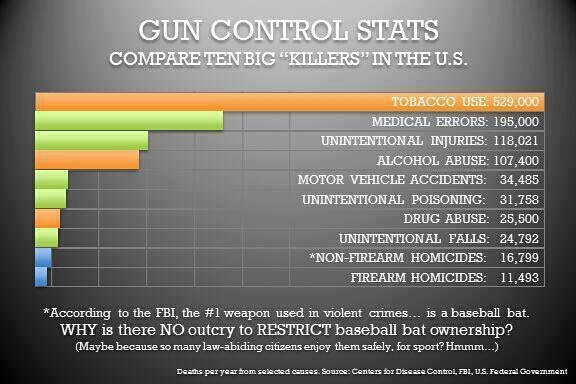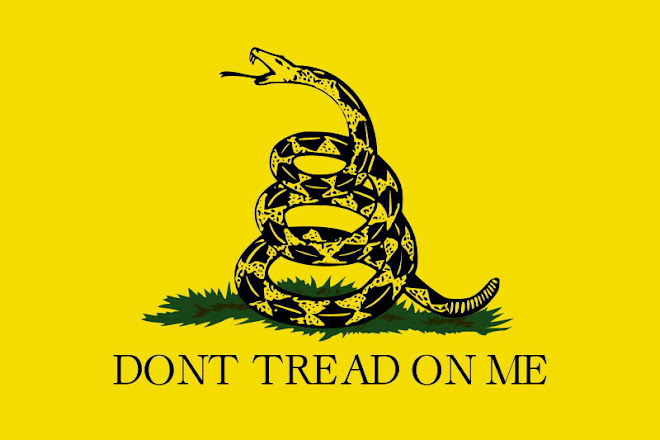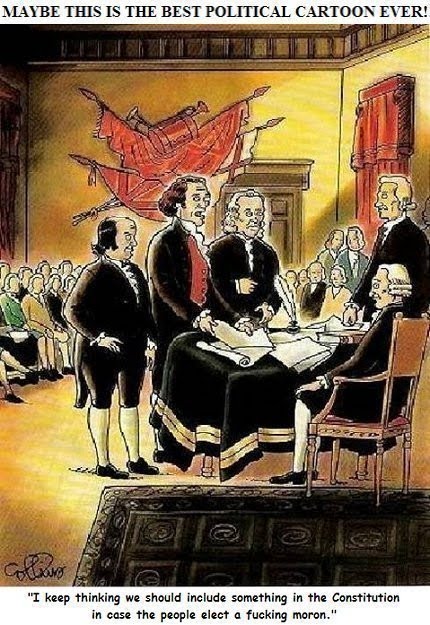Very interesting stuff. What happens if there's a 269-269 tie? Read below and learn something new(I had no idea what happened in case of a tie, and you may be too). The odds are it won't end up in a tie, but there are apparently 32 different ways it could happen, including the map below. Good to know if it does, the tiebreaker advantage goes to Romney/Ryan.
--WRD
-----------------------------------------------------
Romney has solid edge in 269-269 electoral vote tie scenario
October 12, 2012
This scenario, which may not be too far-flung, would cause a tie in the Electoral College between Mitt Romney (red) and Barack Obama (blue). Image from CNN's Electoral College calculator.
Philip Klein
Senior Editorial Writer
The Washington Examiner
As Mitt Romney continues to make gains in swing state polls in the wake of his dominant debate performance last week, it’s becoming increasingly possible that Americans could wake up on Nov. 7 to a 269-269 Electoral College tie. In such a case, Romney would almost surely win the presidency, according to analysis by the Washington Examiner.
Under the U.S. Constitution, in the event of an Electoral College tie, the presidential race is turned over to the House of Representatives (assuming no unexpected defections when the electors formally vote in December). And here’s the twist: Each state would get just one vote, based on what the majority of its own delegation decides. A candidate would thus need 26 votes to win.
In 1800, the last time this happened and state delegations split evenly in their House members’ choice of president, those states (Vermont and Maryland) cast blank ballots. (In that election, because the congressional and presidential inaugurations were held on the same day, the outgoing House chose the president instead of the incoming one. This would not happen today, because the new Congress is sworn in before the electoral votes are counted.)
The Washington Examiner took a detailed look at current House delegations and considered the range of realistic outcomes in this year’s Congressional elections, including changes due to reapportionment. By our estimates, Romney should have at least 26 states safely, with Obama having at least 13 and 11 states up in the air, pending the outcome of the Congressional elections.
Most of the Romney states are pretty obvious: Alabama, Arkansas, Alaska, Georgia, Idaho, Indiana, Kansas, Kentucky, Louisiana, Missouri, Mississippi, Nebraska, North Carolina, Oklahoma, South Carolina, South Dakota, Tennessee, Texas, Utah, Virginia, West Virginia and Wyoming.
The remaining states we gave to Romney (Florida, Ohio, Wisconsin and Pennsylvania) may not be as obvious to readers at first blush, because several of them are likely to vote for Obama. But a closer look at the breakdown of these states’ House delegations shows why they should be considered solidly Romney. For instance, in Pennsylvania, Republicans hold 12 of the state’s 19 House seats, but the state lost a seat following the results of the 2010 Census. The district eliminated was a Democratic one. Democrats are unlikely to make up a six-seat gap in such a close election year. In fact, the Rothenberg Political Report only sees two of Pennsylvania’s Republican seats as competitive, and gives Republicans the edge in both.
The 13 solid Obama states are California, Connecticut, Delaware, Hawaii, Illinois, Maine, Maryland, Massachusetts, New Mexico, New York, Oregon, Washington and Vermont.
This analysis likely understates Romney’s advantage. We’ve been as conservative as is reasonable, not committing states where the outcome is legitimately in doubt. New Jersey, for example, could have a majority Democratic delegation in January, or it could end up tied. Democrats have a better-than-even chance of seizing one or both House seats in New Hampshire, and they might gain enough seats in Colorado to control the delegation there. Republicans may or may not manage to tie the House delegation in Iowa, which shrinks from five to four. Other states, such as Nevada, Michigan, Montana, North Dakota, Arizona, Rhode Island (where Rep. David Cicilline is in some trouble) and Minnesota are legitimately in question.
The website 270towin has identified 32 different scenarios that could result in an electoral vote tie. One example, demonstrated in the map generated from CNN at the top of this post, would be if Romney were to win Florida, North Carolina, Virginia, Colorado, Iowa and Nevada — while Obama wins the rest of the swing states.
skip to main |
skip to sidebar

And tell your friends too!!!

Obama was an Alinsky trainer at ACORN
WRD began in January 2010 at the height of the Obamacare debacle. Since then, WRD banded with a group of like-minded individuals to form the Gadsden Group, influencing thought by challenging bias at the Milwaukee Journal Sentinel, volunteering for Republican candidates, participating in numerous campaign events, networking with other groups of concerned citizens, and gaining a foothold in social media on Twitter. Our "Letter to to the Left" after Governor Walker's convincing win in the June 2012 recall election went viral, and we decided to officially expand this site to include the Gadsden Group name.
We hope this site will be a one-stop shop for great websites, articles, polls, conservative commentary, and more. 2010 was the year of the Republican comeback, and 2012 was off to a great start with the convincing win of Scott Walker, but we have much work to do after the Romney and Thompson defeats, and it's up to all of us to make it happen. Share with friends, convince your kids, do your part to get our great country back! Thanks for visiting our site! Wisconsin Republican Dad and everyone in the Gadsden Group



"I also am a total loser"

3 victories in 4 year, this is uncharted water. Take that you lefties!!!!

wish I had thought of this one!



Send your donation to the Trotsky/Alinsky Center for the Insane


Thanks NSA!



Yuck!






One of the worst things I've ever seen on social media, and that's saying something. Disgusting.

What's the penalty for treason again?






"I go skeetshooting all the time" LOL







Benghazi-Gate is the end of O's political career whether he wins re-election or not. Let's make it not.


"Thanks for ruining our 20th anniversary meanie!"



Dear Leader violates the Flag Code. He should be arrested for putting his image on the flag while being a sitting POTUS. People have died for our Flag. These $35 flags from obama.com are a National disgrace.


Try putting this one on your Dane County SUV!!!

Those guys are working overtime over there

What kind of a vile, despicable person drives this car? (A Hyundai in Detroit as well)


This Massachusetts billboard gets it right!

Thank you Clint Eastwood for the Empty Chair!!! Great stuff!

The day the people were forced to take back their country


Romney for 8, Ryan for 8, Walker for 8, Rubio for 8. Then we die old & happy.



The Wisconsin Boys welcome the next POTUS to WI, the state that saved a country!

What could possibly get between you and your doctor?

Your kids all thank you!





The 1770's flag has made a huge comeback, and for good reason...



"he even writes lefty"

Another great campaign slogan: "Transparency!"

Those marketing folks are working overtime over there...

Please stay in the right lane...

Don't let the Takers defeat the Makers: Defeat Obummer in 2012

I'm kinda diggin' the new slogan: transparency finally?

The Democracy will ceast to exist when you take away from those who are willing to work and give to those who would not.
--Thomas Jefferson

"available at fine clothiers and wherever English is Spoken"

"Republicans believe every day is the 4th of July, Democrats believe every day is April 15th."

Close your eyes...breathe deeply...imagine...

"Thomas, I really think we ought to include this???"

"or what lefties refer to as, those pesky little first 10 amendments that prevent us from stomping on the great unwashed"

Ronaldus Magnus, on a billboard in the Twin Cities
Media Trackers
MacIver Institute
Wisconsin Republican Dad's favorite links
- Breitbart
- American Thinker
- Americans For Prosperity
- Bernie Goldberg
- Bill O'Reilly
- Citizens for Responsible Government
- Dick Morris
- Drudge Report
- Fox News
- Freedom Works
- Grandsons of Liberty (WI)
- Heritage Foundation
- Hot Air
- Learn the Truth About Obama's Past
- Mark Belling
- Mark Levin
- Michelle Malkin
- Milwaukee Journal Sentinel
- National Review
- Paul Ryan
- Politico
- Real Clear Politics
- Red State
- Right Wisconsin
- Ron Johnson
- Scott Walker
- The Daily Caller
- Track liberal bias at the New York Times
- USA Today
- Vicki McKenna
- WISN Common Sense Central
- Where the lefties hang out
- Young America's Foundation
Follow us on Twitter @Gadsden_Group

And tell your friends too!!!
If you understand Alinsky, you understand Leftists

Obama was an Alinsky trainer at ACORN
Welcome to our blog!
WRD began in January 2010 at the height of the Obamacare debacle. Since then, WRD banded with a group of like-minded individuals to form the Gadsden Group, influencing thought by challenging bias at the Milwaukee Journal Sentinel, volunteering for Republican candidates, participating in numerous campaign events, networking with other groups of concerned citizens, and gaining a foothold in social media on Twitter. Our "Letter to to the Left" after Governor Walker's convincing win in the June 2012 recall election went viral, and we decided to officially expand this site to include the Gadsden Group name.
We hope this site will be a one-stop shop for great websites, articles, polls, conservative commentary, and more. 2010 was the year of the Republican comeback, and 2012 was off to a great start with the convincing win of Scott Walker, but we have much work to do after the Romney and Thompson defeats, and it's up to all of us to make it happen. Share with friends, convince your kids, do your part to get our great country back! Thanks for visiting our site! Wisconsin Republican Dad and everyone in the Gadsden Group
Total Pageviews
Blog Archive
About Us

- Wisconsin Republican Dad
- WRD: I'm just a dad and husband who's very worried about the direction this country is going, and decided it was time I got involved. I believe in fiscal restraint, personal responsibility, a much smaller goverment, fewer government programs, agencies, and entitlements, strong national defense, and justice for criminals. I want our borders strengthened, tort reform, a balanced budget, and deficit reduction. I believe in Constructionist judges, not liberals who legislate from the bench. I'm pro gun, I'm for expanding nuclear power and offshore drilling. By default, that makes me a conservative Republican. The liberals are killing this country, and worse, they know it. Their desire to be liked, to be seen as champions of the poor, while they continue to grow the welfare state, bothers me greatly. Because arrogance is the worst of human traits, their condescension (that means you Russ Feingold) towards middle America makes me want to scream. So I am... Gadsden Group: We are a group of like-minded individuals based in Waukesha and Milwaukee counties (WI). We're sick of liberals running our state into the ground, so we decided to make a stand. So far, so good...
Very, very true...

Liberal tears....

"I also am a total loser"
We won! Again!!!

3 victories in 4 year, this is uncharted water. Take that you lefties!!!!
This says it all perfectly

wish I had thought of this one!
Leftists...

Differences

Please, can you help us find a cure?

Send your donation to the Trotsky/Alinsky Center for the Insane
The official definition of liberal

Obama's Desktop

Thanks NSA!
Sounds about right...

Sounds about Right

Please, no more desecration of the White House from these Hippies

Yuck!
Perhaps the best t-shirt evah!

2A

Here's one man who can save our counrty

That liberal lion, John F. Kennedy

Welcome to Wisconsin

The sick freak polymath22 posted this fake image of murdered Martin Richard

One of the worst things I've ever seen on social media, and that's saying something. Disgusting.
TRAITORS! TREASON!!!

What's the penalty for treason again?

What we're up against, #5,678,890




Our Idiot in Chief using his Prompter

"I go skeetshooting all the time" LOL
"What Difference Does it Make?"



Ronald Reagan (deceased) summarizes the Newtown killings
"We must reject the idea that every time a law's broken, society is guilty rather than the lawbreaker." -
--Ronald Reagan
--Ronald Reagan
And it begins...God Help us

Watching Americans die in Benghazi, and not assisting, leads to:

What have we done...

Oct. 25th, 2012 cover, New York Post

Benghazi-Gate is the end of O's political career whether he wins re-election or not. Let's make it not.
Words spoken were never truer...and he said them!!!

If looks could kill...

"Thanks for ruining our 20th anniversary meanie!"
DEFICIT!

Obamanation

This flag desecrator must be stopped NOW!!!

Dear Leader violates the Flag Code. He should be arrested for putting his image on the flag while being a sitting POTUS. People have died for our Flag. These $35 flags from obama.com are a National disgrace.

Now that's funny!

Try putting this one on your Dane County SUV!!!
The New Obama Slogan

Those guys are working overtime over there
My buddy Al G. from near Detroit took this photo...

What kind of a vile, despicable person drives this car? (A Hyundai in Detroit as well)

Thank goodness we're all computer-savvy!

This Massachusetts billboard gets it right!
The best empty chair photo I've seen so far!

Thank you Clint Eastwood for the Empty Chair!!! Great stuff!
June 28, 2012

The day the people were forced to take back their country
I don't care who you are, that's funny!

The great Paul Ryan

Romney for 8, Ryan for 8, Walker for 8, Rubio for 8. Then we die old & happy.

This is perfect for Andrea Mitchell, since she already is a dog!

June 18, 2012

The Wisconsin Boys welcome the next POTUS to WI, the state that saved a country!
Obamacare

What could possibly get between you and your doctor?
Quote that pretty much says it all
"As an American, I am not so shocked that Obama was given the Nobel Peace Prize without any accomplishments to his name, but that America gave him the White House based on the same credentials." --Newt Gingrich
Congratulations to all the 54% ers!

Your kids all thank you!

Got it Leftists? Understand? I didn't think so...




The 1770's flag has made a huge comeback, and for good reason...
"Here's to hoping this isn't your kids' teacher"


Obama's New Bill of Rights

"he even writes lefty"
Obama Marketing team is hard at it!

Another great campaign slogan: "Transparency!"
New campaign slogan for the Obummer juggernaut

Those marketing folks are working overtime over there...
Let's drive a little more carefully this time, OK?

Please stay in the right lane...

Don't let the Takers defeat the Makers: Defeat Obummer in 2012

I'm kinda diggin' the new slogan: transparency finally?

Thomas Jefferson, not exactly a fan of the welfare (ie. liberal) state
The Democracy will ceast to exist when you take away from those who are willing to work and give to those who would not.
--Thomas Jefferson
Scott Walker's Phone # if needed
Governor Walker's office # is 608-266-1212. Please feel free to call him and thank him for everything he has done, if you have questions, anything at all. This is what transparency looks like!!!!
Dads Against Daughters Dating Democrats

"available at fine clothiers and wherever English is Spoken"
Ronald Reagan

"Republicans believe every day is the 4th of July, Democrats believe every day is April 15th."
www.thoseshirts.com

Close your eyes...breathe deeply...imagine...
A clause that didn't make the final draft

"Thomas, I really think we ought to include this???"
The Bill of Rights

"or what lefties refer to as, those pesky little first 10 amendments that prevent us from stomping on the great unwashed"
I wonder what he's thinking now???

Ronaldus Magnus, on a billboard in the Twin Cities
